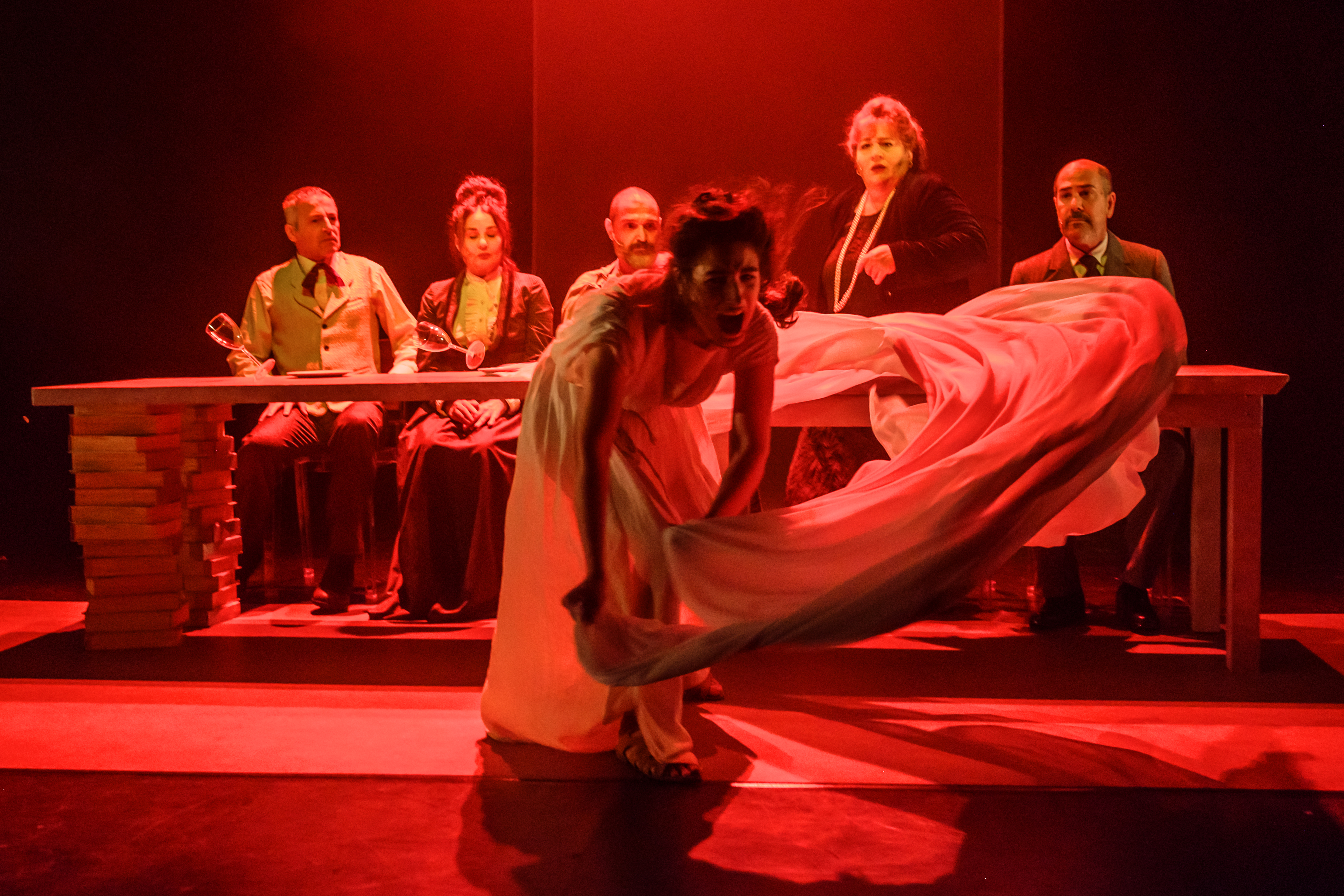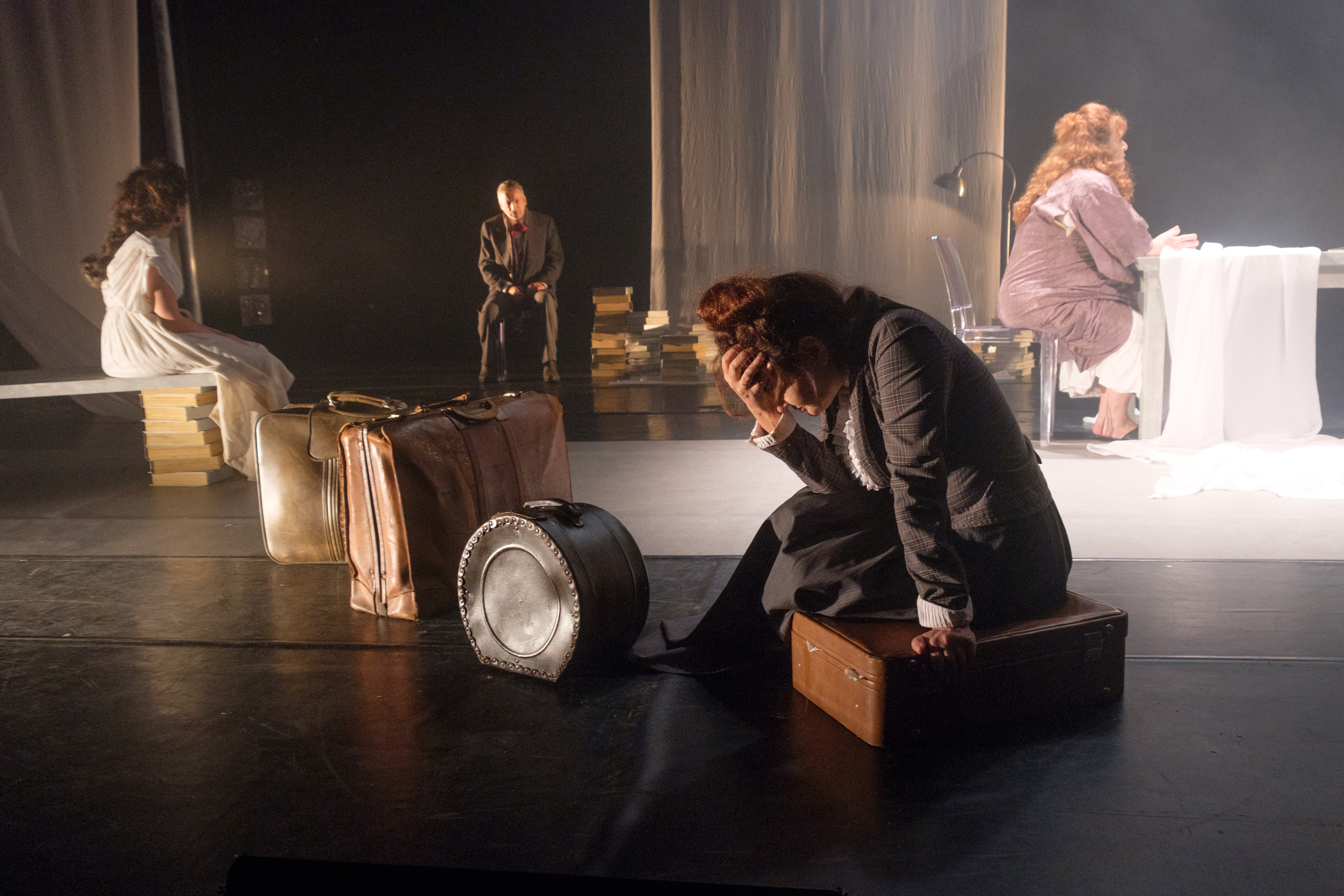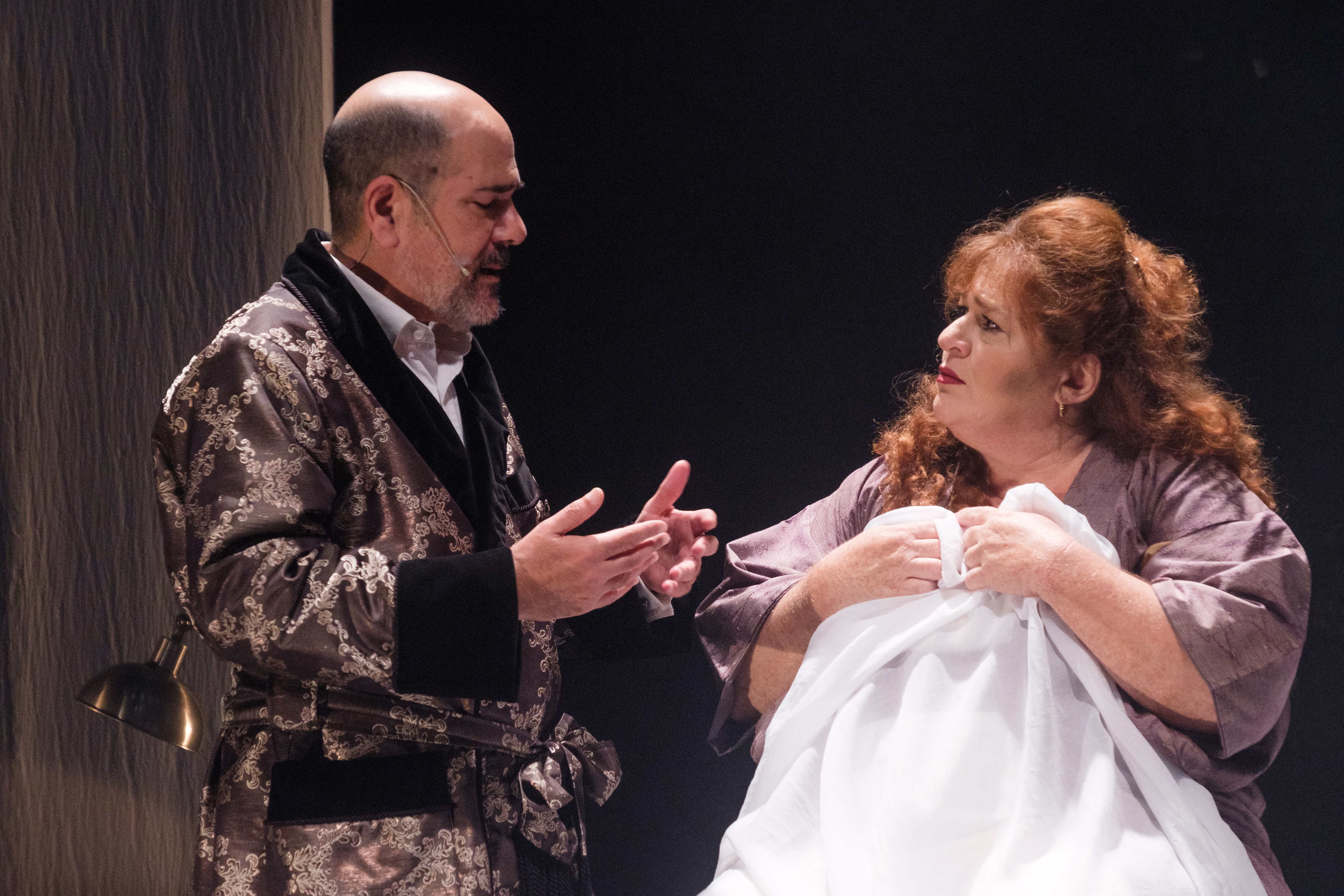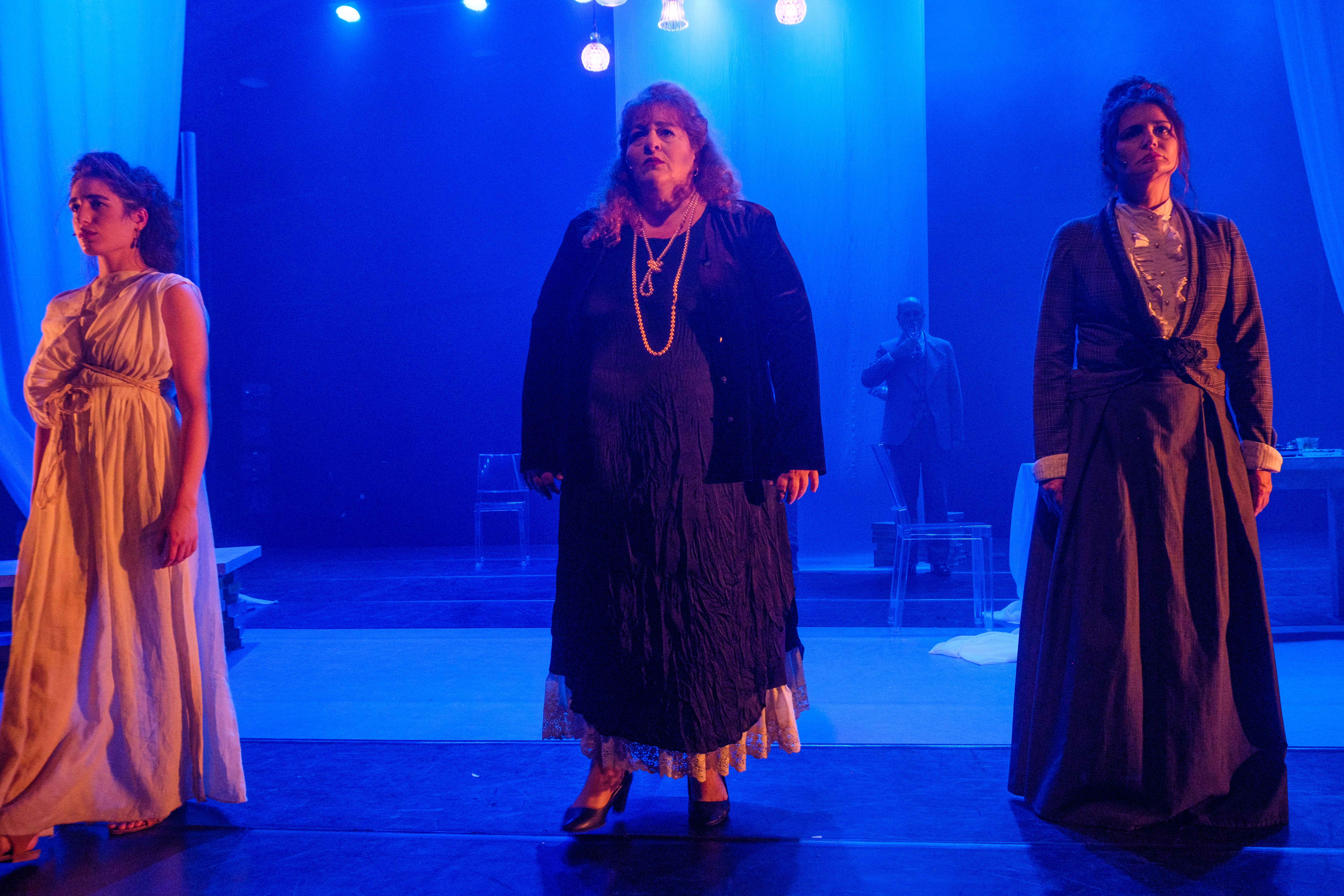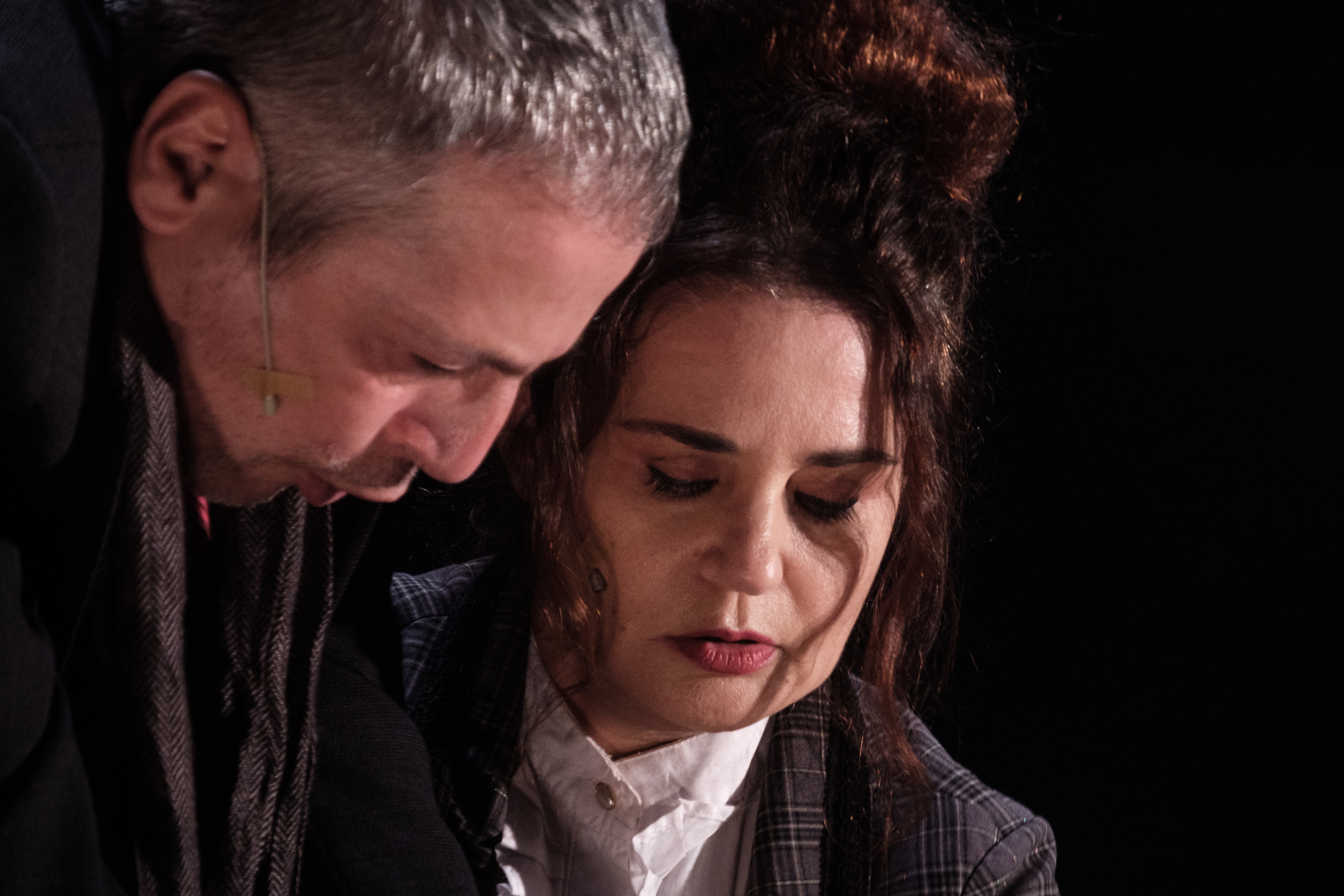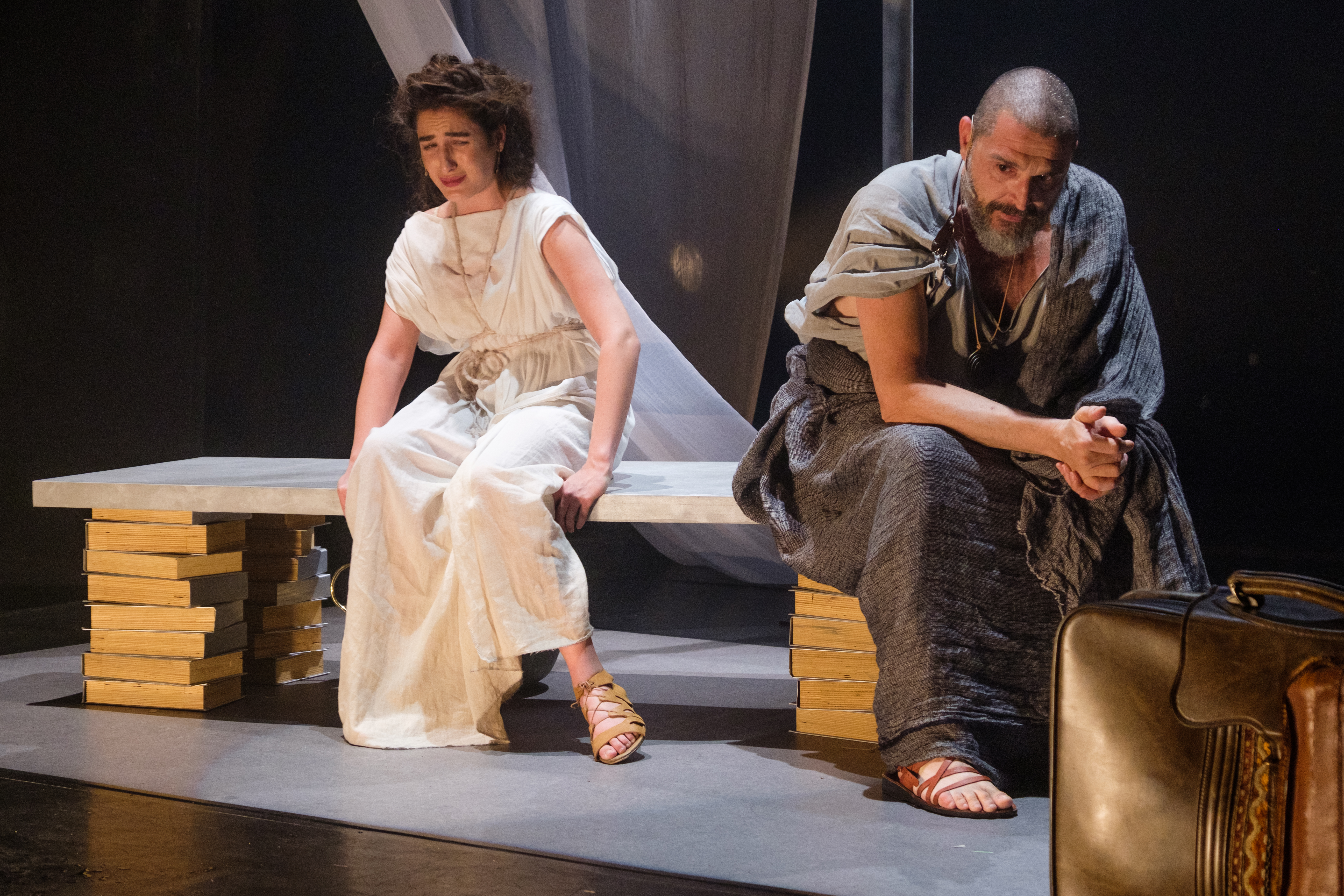|
Psychological Drama
Periodical Drama
Subject:
The Other
History
Relationships
Revolutionism
Family
Feminism
Text in:
 he
he
 English
English
 Greek
Greek
 Georgian
Georgian
 Chinese
Chinese
 The text in external website
The text in external website 

|
“…I managed to take control of myself
by coping day in day out with my ill-tempered wife,
knowing full well that if I manage to cope
with Xanthippe’s mean and sour demeanor,
I could most likely deal with any man in the world…” (Socrates)
Everyone knows the saying, “Behind every successful man stands a woman.”
But what does it truly mean to “stand behind” a genius?
What prices does a woman pay to stand behind such a man, and why, after all, is she behind him and not
beside him? And why does she vanish from the stage of history while he earns eternal fame?
At the center of Revolutionaries Wives stand three men whose revolutions remain relevant to us all today,
.and beside them, their partners—whose contributions to these revolutions went unrecognized
In one fateful night in each couple’s life, the play enters the intimate spaces of Freud and his wife, Martha,
probing her role in his theories on female sexuality; demands justice for Jenny Marx, born a baroness yet
fighting alongside her husband, Karl, for workers’ rights; and redeems the honor of Xanthippe, Socrates’ wife,
.who was unjustly remembered as a difficult woman embittering her husband’s life
The play “Revolutionaries` Wives” creates an imaginary, although plausible, history that rescues the wives of
.the geniuses who changed the world from oblivion
|
Productions
|
Premierre
2018
ENSEMBLE ASPAMIA
Production page
More in Israel
Revolutionaries’ Wives
A play by Yossefa Even-Shoshan and Dalia Shimko
Director: Dalia Shimko
Dialogues: Yossefa Even-Shoshan
Inspired by “Mrs. Freud was Once Again Forgotten” by Françoise Xenakis
The play begins with a historical, timeless banquet at which the three couples meet on the stage, after which it separates into three fateful nights in the lives of each couple – three nights that take place simultaneously on one stage.
-

-
GREEK PRODUCTION
-

-
GREEK PRODUCTION
-

-
GREEK PRODUCTION
-

-
GREEK PRODUCTION
-

-
GREEK PRODUCTION
Martha and Sigmund Freud meet in the bedroom (1896, Vienna). Freud is attempting to crack open the case of a young woman who is being treated for hysteria. He senses that the key is hidden in her erotic relations with her husband, but he can’t put his finger on it. His loving wife Martha comes to his help, sharing her most hidden “meaningless fantasies” with him. Freud is very excited about the discovery that leads him to a scientific breakthrough, but how does this discovery affect the couple’s relationship?
Jenny and Karl Marx meet in the street after they are thrown out of their home along with all their possessions (London 1852). Jenny, who was born as Baroness von Westphalen, but left the niceties of nobility in order to take an active part in the socialist revolution next to her husband, discovers that he used the rent money in order to print booklets and manifestos, and to invite his revolutionary friends for drinks. Hungry, tired and in distress after losing two of their children because of the revolution, the two undertake a serious reckoning with each other, with the revolution and with the toll it has taken from them. And now what? Will they turn their backs on the socialist dream, or will they rediscover the revolutionary fervor that will give them the strength to continue?
Xantippe, whose name became a synonym for an evil wife, sneaks into the prison cell of her husband Socrates, who is thirty years older than her (fifth century B.C.). Socrates is about to drink a cup of poison after being found guilty at the trial where he was accused of denying the gods and corrupting youth. When Xantippe tries to convince him to ask for a retrial, a pardon, or at least exile instead of the death penalty, Socrates emphatically refuses to beg for mercy, arguing that he cannot be in exile, far away from his students. Xantippe, who supported their family while Socrates taught philosophy without being paid, uses Socratic debate to vehemently express the shame of a woman betrayed by her beloved, who married a philosopher because she dreamed that he would awaken her inner wisdom, only to become an octopus seller. Dawn will soon break, and a moment before they are separated forever, will Xantippe be able to change Socrates’ point of view and prove to him that a woman is also capable of thinking and studying philosophy as an equal among equals?
The play intermingles different times and meshes between the real and celestial dimensions, presenting the story of the three couples simultaneously on one stage, beginning with the banquet at the beginning of the play, at which Socrates raises a toast in honor of the special event at which he hosts Freud, Marx
and their wives for dinner. The three geniuses hold a grave and serious debate during which the women fulfill their “traditional” roles, until Xantippe upsets the table and everything on it, and the banquet, which was interrupted in the middle, is transported to an underworld of real relations between the couples that combine daily comic irony and highpoints of dramatic emotion. In the concluding scene, the three couples are once again united in heaven as Socrates drinks the cup of poison hemlock with his friends, while the actresses shed their roles and conclude the play with a number of historical facts that they share with the audience, a moment before the characters once again disappear into the darkness of the stage and of history.
theaters
ENSEMBLE ASPAMIA
|











